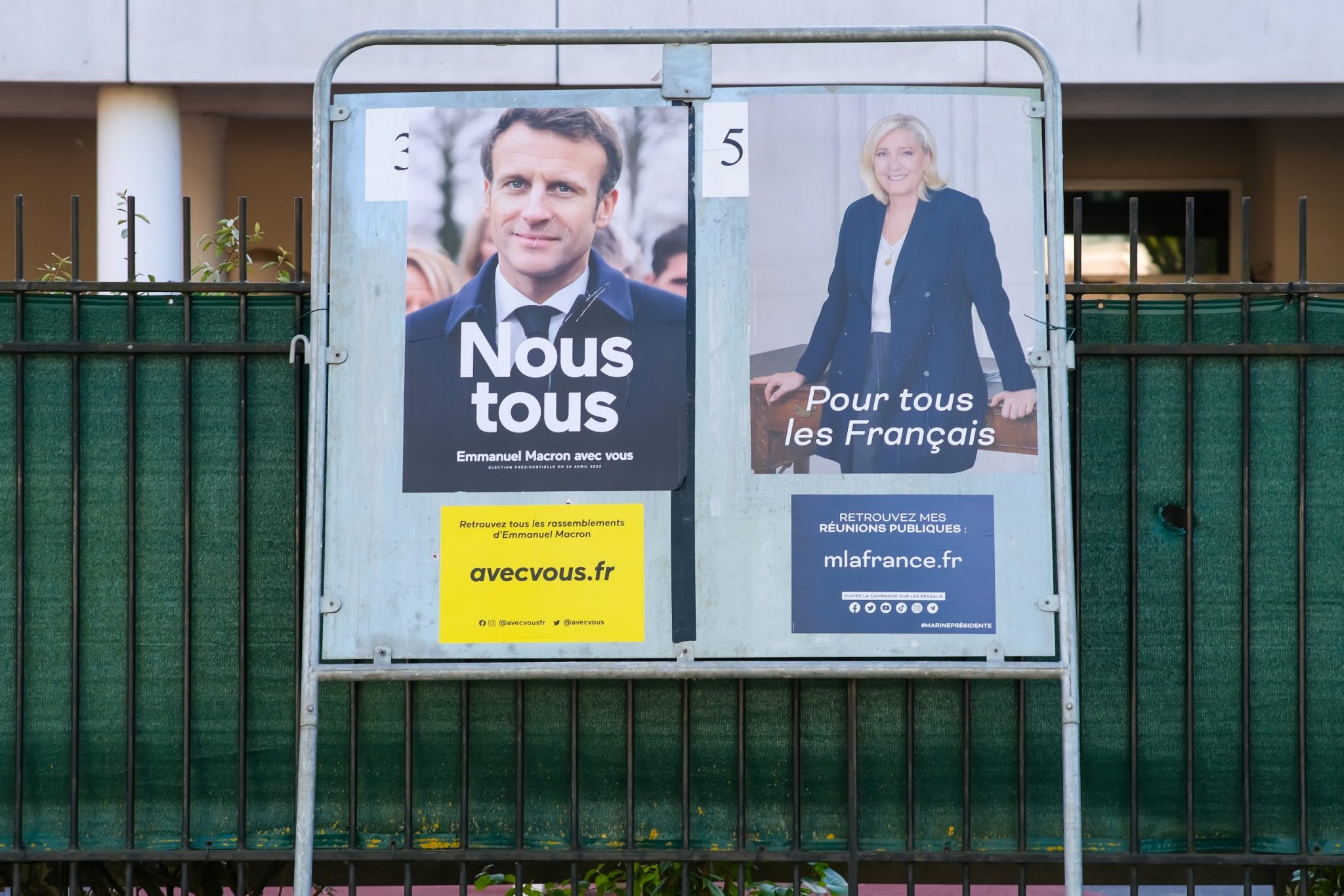Highlights
- The Russian Embassy in Paris was the author of nine of the top ten tweets by French-language Russian accounts last week. As in previous weeks, its messaging focused on the war in Ukraine and ignored domestic French politics.
- Russian state media, especially what’s left of RT France, showed a renewed willingness to weigh in on domestic French issues following Marine Le Pen’s advancement to the second round of the presidential election. Low engagement numbers, however, suggest the effort was not very effective.
- The Chinese Embassy in France kept a low-profile last week after quoting Russian conspiracy theories the week prior. French-language Chinese state media outlets, however, continued to carry water for Moscow by relaying threats directed at countries thinking about joining NATO or by minimizing Russian losses in Ukraine.
- AJ+ Français received significantly higher engagement via its content highlighting corporate malfeasance in Africa and violence against Palestinians, African-Americans, and French Muslims, than it did in its coverage of the French presidential race.
Russia
The Russian Embassy in Paris was the author of nine of the top ten tweets by French-language Russian accounts last week. As in previous weeks, its messaging focused on the war in Ukraine and ignored domestic French politics.
- The embassy shared a speech from Vladimir Putin explaining that the war was meant to protect the Donbass and Russia, a statement from Russia’s foreign minister Sergei Lavrov deploring Washington and Brussels’ “Russophobia,” a statement from Putin accusing Ukraine of genocide, and more updates about the “military-biological activities of the United States in Ukraine.”
- In a speech covered by RT France, Lavrov deplored the restrictions put in place by U.S. platforms on “Russian publications.” This attack on alleged Western censorship was also echoed by the head of RT France, Xenia Fedorova, who defended French TV outlet CNEWS after Reporters Without Borders asked French regulators to shut down the outlet over the lack of impartiality of its news coverage. Fedorova suggested that Reporters Without Borders was turning its attacks against CNEWs after its earlier “crusade against RT France.”
Although RT France’s reach remained limited in the wake of the EU’s Russian state media ban, there was a marginal uptick in coverage of French domestic issues last week from Russian state media accounts in France, though Ukraine remained the dominant topic.
- In addition to the CNEWS tweet mentioned above, the RT France head poked fun at an activist who attacked Marine Le Pen’s ties to Russia.
- The top two key phrases in Russian state media tweets last week were “Macron” and “Pen.” The content on Macron was usually negative, reminiscing on his blunders or on unpopular aspects of his presidency. Several Le Pen-related tweets had distinct conspiratorial undertones, implying that the EU is conspiring against her.
- Engagement numbers for content focusing on French political and social issues was quite low. On Facebook, content related to the presidential race was drowned out by Ukraine-related posts. And on Twitter, nine of the ten most retweeted tweets focused on Russian foreign policy issues.
China
As with previous weeks, Chinese diplomatic messengers avoided the French presidential race. French-language Chinese state media coverage of the election was factual and largely presented without editorial spin.
- After the Chinese Embassy in Paris retweeted Russian denials about the massacre in Bucha two weeks ago, it adopted a less provocative approach last week. The most controversial content from the embassy was the promotion of a French-language book purporting to counter earlier allegations about Chinese interference in France
- Much of CGTN Français’ top performing content on YouTube relayed Moscow’s point of view on the war in Ukraine, with headlines like “Moscow: Ukrainian helicopters hit residential buildings,” “Moscow: nuclear weapons and hypersonic missiles if Finland and Sweden join NATO,” and “Moscow’s warning to Sweden and Finland over NATO adhesion.”
- On Facebook, CGTN Français reported on the sinking of the Moskva cruiser by quoting Russian statements about “turbulent waters” and “an explosion.”
Qatar
- On Twitter, Facebook, and YouTube, AJ+’s top performing output last week was a short documentary denouncing the poor quality of Nestle food products sold in Senegal.
- Four of AJ+’s top ten tweets last week pertained to Israeli violence against Palestinians. Other news stories of interest included a statement by the head of the WHO criticizing double standards toward different conflicts, and coverage of the police killing of a Black man in the United States.
- The main AJ+ story concerning France was a racist assault against hijab-wearing youths.
- Stories related to the presidential race generated far less engagement than the aforementioned social commentary and human interest pieces.
Turkey
- The top three tweets by French-language Turkish state media concerned a relatively minor administrative decision on a mosque in southern France.
- On Facebook, the most interacted with TRT Français stories focused on Africa and Turkey.
- The few posts about French politics that generated a modicum of engagement tended to be negative toward Le Pen and neutral/positive toward Macron.
The views expressed in GMF publications and commentary are the views of the author alone.





